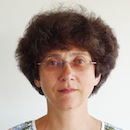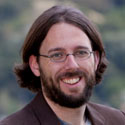Academic Editors
The following people constitute the Editorial Board of Academic Editors for PeerJ. These active academics are the Editors who seek peer reviewers, evaluate their responses, and make editorial decisions on each submission to the journal. Learn more about becoming an Editor.

Hugo Sarmento
Professor in the Department of Hydrobiology of the Universidade Federal of São Carlos (UFSCar). Head of the Laboratory of Microbial Processes and Biodiversity, my research area is aquatic microbial ecology, with emphasis on biotic interactions, structure and function of planktonic communities in all compartments of the food web (viruses, bacteria, phytoplankton, zooplankton) mainly in tropical aquatic environments.

Peter Wilf
After my eclectic and non-geological 20s, I discovered geology and then paleobotany and have never looked back. Most of my thesis research (Penn Geology) was done in residence at the Smithsonian, on megafloral and paleoclimatic change across the Paleocene-Eocene boundary in southern Wyoming. During this time and in an ensuing Smithsonian postdoc, I began developing two major subsequent themes of my research: the fossil history of plant-insect associations and the remarkable riches of Patagonian fossil floras. I spent three years at Michigan, 1999-2002, as a Michigan Fellow and happily joined the Penn State Geosciences faculty in 2002, where I have been developing these and several other wonderful research projects with my students and colleagues all over the world.

Jesús Marugán-Lobón
Dr. Marugán-Lobón is a Paleobiologist from the Universidad autónoma of Madrid, Spain. He is an specialist in Geometric Morphometrics, and his research is focused in understanding macroevolutionary trends in vertebrates, and in particular, the dinosaur-bird transition. He belongs to the research staff of the Las Hoyas fossil site, is Research Associate of the Dinosaur Institute (NHM), and colaborates with the Theoretical Biology Lab, Cavanilles Institute of Biological Diversity and Evolution.
Ursula Stochaj
Associate Professor in the Department of Physiology at McGill University, Montreal.
Research interests: protein and RNA transport, nuclear function and organization, stress, signaling, chaperones, nanobiology, stem cell biology, microscopy, quantitative image analysis, high-throughput screening.
Dirk Steinke
Dr. Dirk Steinke is an Adjunct Professor within the Department of Integrative Biology at the University of Guelph.
His research program focuses on various themes at the intersection of evolution, ecology and genomic science.
- Mitonuclear coevolution
- Coevolution of Complex IV in fishes
- Improved understanding of niche differentiation

Carmen Arena
Carmen Arena is Associate Professor in Ecology at the Department of Biology of the University of Naples Federico II. She conducts researches in the ecological disciplines, dealing with studies concerning photosynthesis and morpho-functional adaptation strategies of higher plants and macroalgae in response to mono and multiple stresses in natural and controlled environments, with applications in ecological, biotechnological and agronomic field.
The research activity holds three main issues:
1) Regulation of the photosynthetic process in higher plants and macroalgae in response to ecological factors in the context of environmental change.
2) Study of plant growth in an extra-terrestrial environment.
3) Plant-soil interactions in natural and anthropized ecosystems.
These researches include a) the eco-physiological response of crop species to light quality; (b) the morpho-functional strategies of plant in phytoremediation studies (c)) the relationship between soil pollution, edaphic communities and photosynthesis in higher plants used in biomonitoring studies.
C. Arena is author of 130 publications peer-reviewed ISI-WoS/Scopus, and participated to more than 150 National and International congresses and workshops, most of them as speaker and invited speaker.

Qianwen Zhang
Dr. Qianwen Zhang is an Assistant Professor at Mississippi State University.
Her research is focusing on Organic Agriculture, Biostimulant Application, Controlled Environment Agriculture, Hydroponics, Analytical Chemistry, Food Science, Microbiology, and Sensory Evaluation.

Asa Ben-Hur
My lab specializes in applications of machine learning in bioinformatics. We are developing methods for predicting protein function and interactions, and are studying the process of alternative splicing in plants

Alla S Kostyukova
Associate Professor at Voiland School of Chemical Engineering & Bioengineering. Former director of the Circular Dichroism facility at Robert Wood Johnson Medical School, Piscataway, NJ.
Ana Maria Jimenez-Cebrian
Dr. Ana Maria Jimenez-Cebrian is a Professor within the Department of Nursing and Podiatry at the University of Malaga.
Her primary research areas focus on Confirmatory Factor Analysis, Anthropometrics, Musculoskeletal, Childhood, Gait and Walking.

Ethan P White
Associate Professor in the Department of Wildlife Ecology and Conservation at the University of Florida. Moore Foundation Investigator in Data-Driven Discovery. National Science Foundation CAREER 'Young Investigators' Award recipient. Member of the Data Carpentry and Impactstory boards of directors.
My research focuses on data-intensive questions in ecology, using large ecological datasets, advanced statistical/machine learning methods, and theoretical modeling to understand ecological patterns.

J Gregory Caporaso
I am an Associate Professor of Biology with a focus on microbiome research and bioinformatics.

